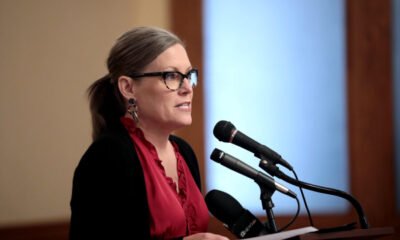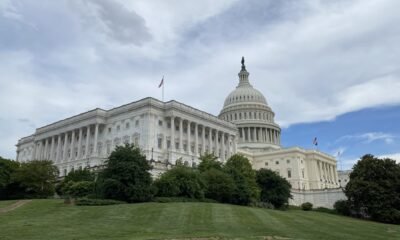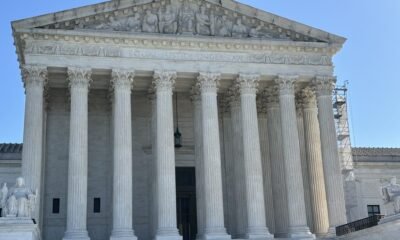Business
Despite Trump’s Triumph, U.S. Voters Reject School Vouchers Again

In a significant turn of events, recent elections have reaffirmed public resistance to school voucher programs across the nation. Arizona’s voters demonstrated a clear rejection of school vouchers in 2018, a trend that has persisted in other states this week. The ballot measure back then aimed to extend taxpayer funding for private education, even for wealthier families seeking religious schooling; it was defeated by a staggering 65% to 35%.
Despite hopes from former President Donald Trump and various Republican leaders to revive support for school choice initiatives, voters in states like Kentucky, Nebraska, and Colorado delivered clear messages against expanding voucher programs. In Kentucky, a ballot initiative intended to funnel public funds into private education met a similar fate, losing by a roughly 65% to 35% margin. Interestingly, this reflects the same resounding defeat seen in Arizona. Nebraska’s nearly unanimous voter action also dismantled an existing voucher program in all 93 counties, including traditionally Trump-supporting areas.
The trend continues to highlight a growing coalition of opposition among various voter demographics. Tim Royers, president of the Nebraska State Education Association, observed that both progressive Democrats and rural Republicans are increasingly united against sweeping school choice reforms. In many rural communities, local public schools serve as crucial institutions, fueling the resistance to private vouchers where options are limited.
Yet, the situation is complex. America’s school voucher initiatives have fared better when not put to direct public vote. Over the past few years, numerous states have enacted or expanded voucher programs, granting taxpayer money to even affluent families who can already afford private schooling. Arizona has notably adopted a universal education savings account initiative, despite voters’ previous rejection.
To bypass public discontent, some Republican governors have tactically displaced anti-voucher party members, fostering a legislative environment more favorable to voucher laws. In Iowa, Governor Kim Reynolds successfully removed incumbents from her party who opposed new voucher programs, thus consolidating power to pass legislation. This pattern also emerged in Tennessee and Texas, where pro-voucher candidates gained significant support during recent elections.
Texas Governor Greg Abbott claimed a resounding victory for pro-voucher candidates shortly after the elections, emphasizing a supposed tidal wave of support. However, many candidates did not prioritize vouchers in their campaigns, reflecting mixed opinions among Texans; a recent University of Houston poll highlighted that while two-thirds of respondents supported vouchers, an equal number feared they would detract from struggling public schools.
Candidates, such as Denise Villalobos from Corpus Christi, focused on public school funding instead of explicitly promoting vouchers in their campaigns. Experts indicate this strategic diversion illustrates a belief among voucher proponents that the issue may not resonate strongly compared to more divisive topics like immigration.
Political analysts have noted that Democrats may be underestimating school choice’s potential appeal among working-class voters, including Latinos in Texas. However, the consistent rejection of voucher initiatives depicts a clear dissonance between public sentiment and the agendas of prominent advocates like Trump and Betsy DeVos, who continue to push for these programs.
Supporters of vouchers cite various motivations, such as a belief in privatized education’s superiority, concerns over liberal values in public schools, and intentions to encourage religious education. Despite extensive pushback from voters, experts like Josh Cowen of the Education Law Center assert that wealthy interests and influential governors are likely to persist in their voucher advocacy, potentially aided by future decisions from the Supreme Court.


















